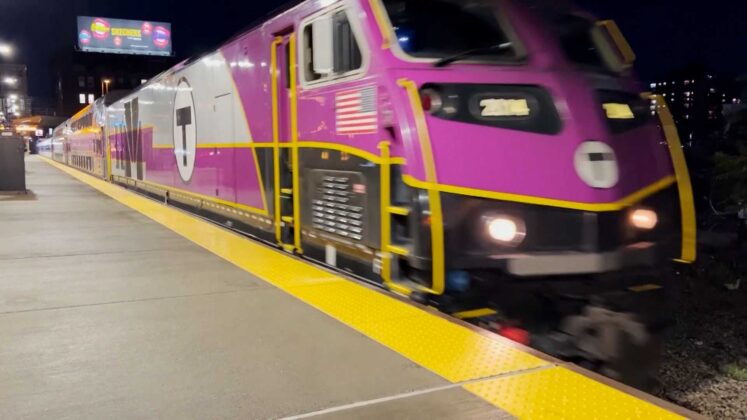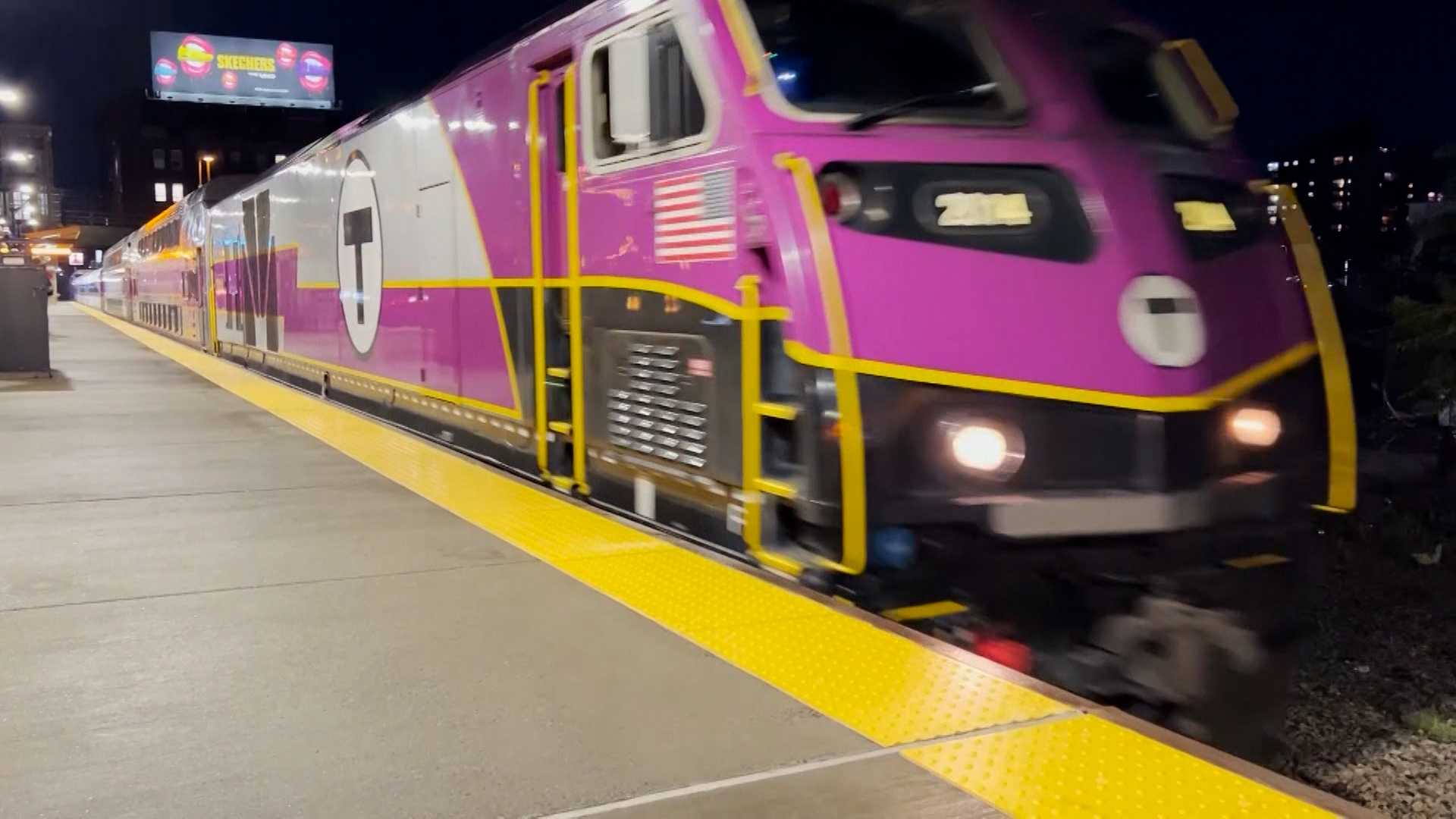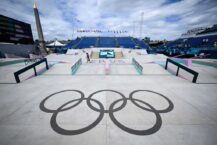No products in the cart.

MBTA sued for $158M in fight over safety system contract

Hitachi Rail, the company selected in 2015 to install federally mandated safety systems throughout the MBTA’s Commuter Rail network, is now suing the transit agency in pursuit of more than $158 million in damages. Hitachi’s predecessor, Ansaldo STS, was selected by the MBTA for a $338 million contract to install Positive Train Control throughout the Commuter Rail system.In a case filed Tuesday in federal court in Massachusetts, Hitachi said it originally entered into a deal with the MBTA to install the mandated PTC systems on the north side of the Commuter Rail network. Roughly four years later, Hitachi said the contract was modified to include Automatic Train Control systems for the southern Commuter Rail lines, adding $253 million to the deal. According to the Federal Railroad Administration, the PTC systems are “designed to prevent train-to-train collisions, over-speed derailments, incursions into established work zones, and movements of trains through switches left in the wrong position.” Implementation of the systems was required under a law passed in 2008.Hiatchi’s lawsuit alleges that the MBTA has “repeatedly required” work beyond the contractual obligations “and then refused to pay for it.” A specific example cited in the document is the design and construction of all existing signal houses along the north side routes after Hitachi discovered that many of the existing locations could not be repurposed. The company said it expected to retrofit 91 signal houses but ended up doing 204. Another example cited in the lawsuit was the unanticipated impact of the Gloucester Draw Bridge Project on Hitachi’s plans. The company alleges that the MBTA has refused to issue a change order or pay for the additional work required by this issue. Hitachi said the MBTA “consistently” failed to complete design reviews within the required 14-day window and “burdened Hitachi Rail with literally thousands of questions, opinions, comments and requests.” The company said it is suing to recoup unpaid costs including for materials and work beyond the scope of the contract; compensation for delays caused by the MBTA; and losses related to the MBTA’s alleged refusal to grant timely acceptance of the work, which caused a nearly 3-year extension of the warranty period. “The PTC Safety Project is nearing completion, but continues to be plagued by a number of problems, for which Defendant MBTA is responsible. These include delays driven by the aforementioned changes to the contractually agreed work, ongoing lack of MBTA-supplied flagger support necessary for Hitachi Rain to perform work in the right of way, MBTA track access denials, MBTA-mandated resequencing and COVID-19 impacts,” the lawsuit alleges. “Defendant MBTA also elected to prioritize the work of other contractors.” In addition to the financial damages, Hitachi is also asking for an extension on the final delivery of the project. Within the lawsuit, Hitachi repeatedly alleges that the MBTA could not afford to pay the agreed prices of the original or modified contracts. “Despite Hitachi Rail’s repeated demands and attempts to resolve the claims detailed below, Defendant MBTA has failed and refused to issue Change Orders, to acknowledge delays, or to compensate Hitachi Rail for the costs and other impacts incurred by Hitachi Rail in connection with the same, in breach of the Contract,” the lawsuit states. NewsCenter 5 has requested a response from the MBTA and Keolis, but they have not yet responded.
BOSTON —
Hitachi Rail, the company selected in 2015 to install federally mandated safety systems throughout the MBTA’s Commuter Rail network, is now suing the transit agency in pursuit of more than $158 million in damages.
Hitachi’s predecessor, Ansaldo STS, was selected by the MBTA for a $338 million contract to install Positive Train Control throughout the Commuter Rail system.
Advertisement
In a case filed Tuesday in federal court in Massachusetts, Hitachi said it originally entered into a deal with the MBTA to install the mandated PTC systems on the north side of the Commuter Rail network. Roughly four years later, Hitachi said the contract was modified to include Automatic Train Control systems for the southern Commuter Rail lines, adding $253 million to the deal.
According to the Federal Railroad Administration, the PTC systems are “designed to prevent train-to-train collisions, over-speed derailments, incursions into established work zones, and movements of trains through switches left in the wrong position.” Implementation of the systems was required under a law passed in 2008.
Hiatchi’s lawsuit alleges that the MBTA has “repeatedly required” work beyond the contractual obligations “and then refused to pay for it.” A specific example cited in the document is the design and construction of all existing signal houses along the north side routes after Hitachi discovered that many of the existing locations could not be repurposed. The company said it expected to retrofit 91 signal houses but ended up doing 204.
Another example cited in the lawsuit was the unanticipated impact of the Gloucester Draw Bridge Project on Hitachi’s plans. The company alleges that the MBTA has refused to issue a change order or pay for the additional work required by this issue.
Hitachi said the MBTA “consistently” failed to complete design reviews within the required 14-day window and “burdened Hitachi Rail with literally thousands of questions, opinions, comments and requests.”
The company said it is suing to recoup unpaid costs including for materials and work beyond the scope of the contract; compensation for delays caused by the MBTA; and losses related to the MBTA’s alleged refusal to grant timely acceptance of the work, which caused a nearly 3-year extension of the warranty period.
“The PTC Safety Project is nearing completion, but continues to be plagued by a number of problems, for which Defendant MBTA is responsible. These include delays driven by the aforementioned changes to the contractually agreed work, ongoing lack of MBTA-supplied flagger support necessary for Hitachi Rain to perform work in the right of way, MBTA track access denials, MBTA-mandated resequencing and COVID-19 impacts,” the lawsuit alleges. “Defendant MBTA also elected to prioritize the work of other contractors.”
In addition to the financial damages, Hitachi is also asking for an extension on the final delivery of the project.
Within the lawsuit, Hitachi repeatedly alleges that the MBTA could not afford to pay the agreed prices of the original or modified contracts.
“Despite Hitachi Rail’s repeated demands and attempts to resolve the claims detailed below, Defendant MBTA has failed and refused to issue Change Orders, to acknowledge delays, or to compensate Hitachi Rail for the costs and other impacts incurred by Hitachi Rail in connection with the same, in breach of the Contract,” the lawsuit states.
NewsCenter 5 has requested a response from the MBTA and Keolis, but they have not yet responded.




